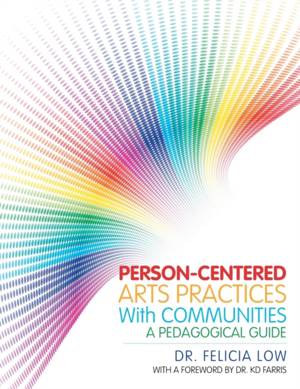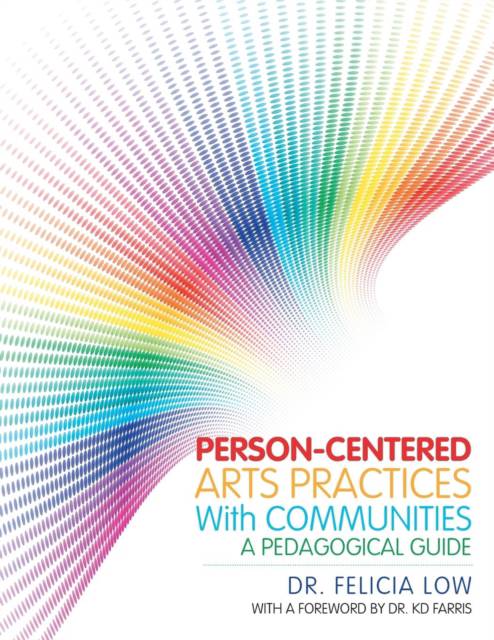
Bedankt voor het vertrouwen het afgelopen jaar! Om jou te bedanken bieden we GRATIS verzending (in België) aan op alles gedurende de hele maand januari.
- Afhalen na 1 uur in een winkel met voorraad
- In januari gratis thuislevering in België
- Ruim aanbod met 7 miljoen producten
Bedankt voor het vertrouwen het afgelopen jaar! Om jou te bedanken bieden we GRATIS verzending (in België) aan op alles gedurende de hele maand januari.
- Afhalen na 1 uur in een winkel met voorraad
- In januari gratis thuislevering in België
- Ruim aanbod met 7 miljoen producten
Zoeken
€ 36,45
+ 72 punten
Omschrijving
Are you an artist who works with a variety of communities? Are you interested to deepen and expand on the meaning of your work? This book presents a pedagogical framework which aims to guide the practices of artists who work with communities. It presents the social, personal, cognitive and cultural dimensions of a person-centered approach in a dynamic, interwoven manner, which will enrich your practice through a thorough process of reflection, evaluation and co-creation. "In my journey as a dance therapist, I have pondered the issue of professional boundaries - where does the dance artist end and the dance therapist begin? My inclination has veered towards a democratic perspective, recognizing the great work community artists - 'non-therapist' - can achieve. At the same time, I have been aware that artists working with groups such as I (people with dementia), required something beyond arts skills in order to facilitate inclusive, participatory and life-enhancing activities. Dr. Low addresses this issue exactly. She provides a coherent and impressive theoretical framework to underpin the work of the person-centred arts facilitator and offers practical guidelines for setting up and running arts programs which are sensitive to context. The aim of this book is a worthy one in its encouragement to develop arts activities which become, in Dr. Low's words, 'an active means of growth' for the participants. From my experience, I also know how enriching a person-centred approach is for the arts facilitator, which is why the following remark by Dr. Low on the value of working in a person-centred way resonates with me, for this is 'a practice that will never stagnate, never come to a closed conclusion, because communities too never stagnate and come to closed conclusions'." Dr. Heather Hill, dance movement therapist for over 30 years, now consultant in dance and person-centered practice in dementia.
Specificaties
Betrokkenen
- Auteur(s):
- Uitgeverij:
Inhoud
- Aantal bladzijden:
- 80
- Taal:
- Engels
Eigenschappen
- Productcode (EAN):
- 9781490792552
- Verschijningsdatum:
- 12/12/2018
- Uitvoering:
- Paperback
- Formaat:
- Trade paperback (VS)
- Afmetingen:
- 216 mm x 279 mm
- Gewicht:
- 272 g

Alleen bij Standaard Boekhandel
+ 72 punten op je klantenkaart van Standaard Boekhandel
Beoordelingen
We publiceren alleen reviews die voldoen aan de voorwaarden voor reviews. Bekijk onze voorwaarden voor reviews.









